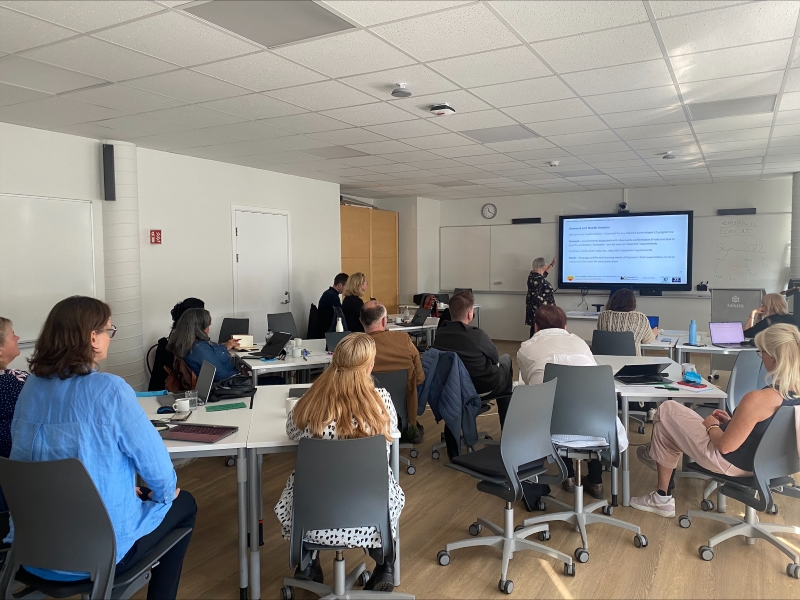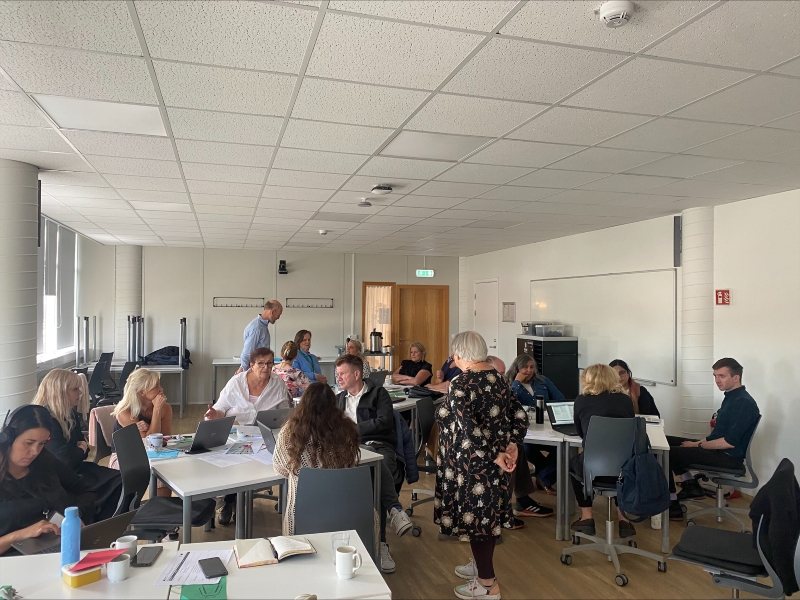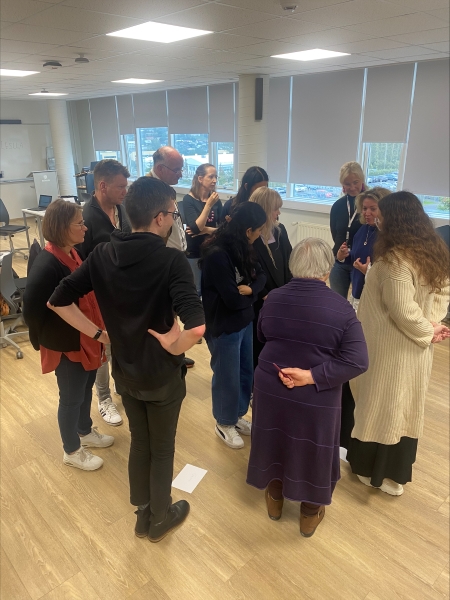The ECML offers its member states European expertise in language education adapted to the concrete needs and specific contexts within individual countries. This bilateral support in a range of key areas helps strengthen the cooperation between member states and the ECML by taking the expertise gained from ECML projects directly into member states. ECML experts work with national authorities and local experts to devise and implement in-country activities, tailored to the particular context and target audience. Please note that activities offered in cooperation with the European Commission are subject to a separate Call for requests which will be issued in December.

The following ECML training and consultancy activities are on offer for 2026:
- Action research communities for language teachers
- Beyond CLIL – Pluriliteracies teaching for deeper learning
- The CEFR Companion Volume: Mediation and other key concepts – Focus: teacher and learner competences
- The CEFR Companion Volume: Mediation and other key concepts – Focus: curriculum and evaluation
- Fostering digital citizenship through language education
- Language for work – Work-related second language learning for adult migrants and ethnic minorities
- Learning environments where languages flourish – Focus: Early language learning
- Learning environments where languages flourish – Focus: Plurilingual and intercultural education
- A roadmap for schools to support the language(s) of schooling
- Plurilingual and intercultural education in early language learning
- Plurilingual and intercultural education: teacher and learner competences
- Steps towards implementing plurilingual and intercultural education
Details of the proposed activities, practical information and the application form can be found here: www.ecml.at/Trainingandconsultancy.
Requests for a Training and consultancy activity must be submitted via the national ECML representative in the Governing Board. Educational professionals interested in a particular activity should therefore contact their national representative.
The application deadline for 2026 is 14 November 2025.
Local organiser: Vanessa Monika Isenmann, project manager at Mímir - símenntun
ECML experts: Matilde Grünhage-Monetti (Germany, Alexander Braddell (UK)
Participants: 22 Icelandic teachers as well as project managers at Mímir – símenntun
Thanks to the ECML, Mímir, a lifelong learning centre in Reykjavík (Iceland), had the opportunity to host a workshop on work-related L2-Icelandic teaching for teachers and project managers. Led by two ECML experts from the Language for Work network, the workshop provided new insights and ideas regarding the design and planning of more effective L2-courses at the workplace, as well as fresh perspectives and methods for the development of course curricula, lesson structures, and course materials.
The workshop featured inputs from Language for Work partners across Europe, showcasing innovative practices and principles from various contexts. The participants were able to relate these examples to their own settings, identifying opportunities to enhance local practices. This collaborative effort fostered a shared understanding between the participants on how to better support work-related language learning.
The event significantly impacted the participants, offering a clearer vision of effective language teaching for the labour market. This knowledge will enable us to better plan and organize Icelandic courses at workplaces and to promote improved collaboration between our teachers and project managers.
Overall, the workshop achieved both didactic-methodological and strategic goals, marking a transformative step in enhancing adult language education in Iceland.
Why a Language for Work TaC activity is relevant for Iceland
Over the past three decades, immigration has grown profoundly in Iceland. While in 1993 less than 2% of Iceland’s population had foreign nationality, in 2023 more than 17% were non-Icelandic citizens according to Statistics Iceland. At the same time, unemployment is very low in Iceland and the Icelandic labour market depends increasingly on skilled workers from abroad, for example in the health system, childcare, construction, and in the hospitality sector. As a result of this, the demand for Icelandic courses, not least with regard job-related language training, has grown immensely in recent years and with it the need for skilled teachers of Icelandic. However, courses and training opportunities for (future) teachers of Icelandic as a foreign language are rare in Iceland. Especially when it comes to specialized job-related Icelandic courses, training opportunities for teachers are few and far between. Therefore, our Icelandic teachers greatly benefit from well-structured and established teacher education regarding job-related language teaching.
Vanessa Monika Isenmann, project manager at Mímir - símenntun
Related links (available in English and French)



The ECML offers its member states European expertise in language education adapted to the concrete needs and specific contexts within individual countries. This bilateral support in a range of key areas helps strengthen the cooperation between member states and the ECML by taking the expertise gained from ECML projects directly into member states. ECML experts work with national authorities and local experts to devise and implement in-country activities, tailored to the particular context and target audience. For 2025 a number of new areas are on offer which build on the results of projects run within the Inspiring innovation in language education programme (2020-23). Please note that activities offered in cooperation with the European Commission are subject to a separate Call for requests which will be issued in late November.
The following ECML training and consultancy activities are on offer for 2025:
- Plurilingual and intercultural education: teacher and learner competences
- Steps towards implementing plurilingual and intercultural education
- Plurilingual and intercultural education in early language learning
- The CEFR Companion Volume: Mediation and other key concepts – Focus: teacher and learner competences
- The CEFR Companion Volume: Mediation and other key concepts – Focus: curriculum and evaluation
- Learning environments where languages flourish – Focus: Plurilingual and intercultural education
- Learning environments where languages flourish – Focus: Early language learning
- Action research communities for language teachers
- Fostering digital citizenship through language education
- Language for work – Work-related second language learning for adult migrants and ethnic minorities
- Beyond CLIL – Pluriliteracies teaching for deeper learning
- A roadmap for schools to support the language(s) of schooling
Details of the proposed activities, practical information and the application form can be found here: www.ecml.at/Trainingandconsultancy.
Requests for a Training and consultancy activity must be submitted via the national ECML representative in the Governing Board. Educational professionals interested in a particular activity should therefore contact their national representative.
The application deadline for 2025 is 15 November 2024.